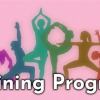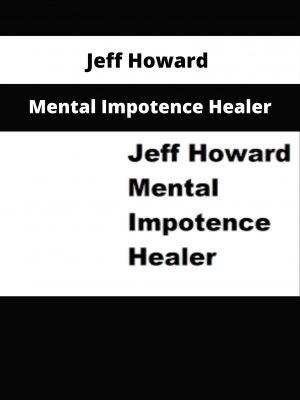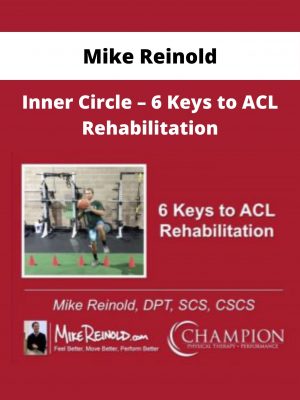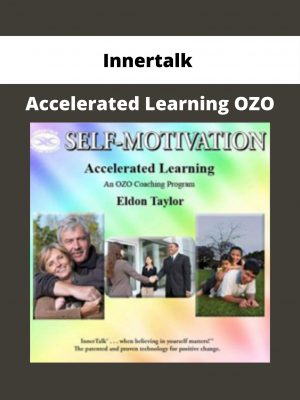Benjamin Hardy – Willpower Doesn’t Work
$26
Shopping Instructions:
- DISCOUNT 15% : SHOP15
- Product Delivery: Within 1 – 12 hours after purchase.
No matter how much internal resolve you have, you will fail to change your life if you don’t change your environment. Format File: [PDF & EPUB] File Size: 1.25 MB
Benjamin Hardy – Willpower Doesn’t Work
Willpower Doesn’t Work. Here’s How to Actually Change Your Life.
“Many people think that what the addict needs is willpower, but nothing could be further from the truth.” — Arnold M. Washton, Ph.D.
This article is an excerpt from my forthcoming book, WILLPOWER DOESN’T WORK.
If you want to make any permanent change in your life, willpower won’t get you there.
Whether you want to get healthier, stop using social media so much, improve your relationships, be happier, write a book, or start a business — willpower won’t help you with any of these things.
Personal progress and achieving success are best approached like you’re overcoming addiction. Because, quite literally, that’s what you’re doing. As human-beings, we all have addictions.
I openly admit being addicted to social media, my current belief system, my comfort zone, and my excuses. I’m also addicted to a lot of other behaviors that contradict my goals.
We are all addicted. And the cognitive dissonance is numbing.
If you’re serious about the changes you want to make, willpower won’t be enough. Quite the opposite. Willpower is what’s holding you back.
Willpower is a broken approach to thriving and success
“Willpower is for people who are still uncertain about what they want to do.” — Helia
If you’re required to exert willpower to do something, there is an obvious internal conflict. You want to eat the cookie, but you also want to be healthy. Environment versus goal.
The tension is mounting…
!!!
What are you going to do?
Are you going to be strong this time and resist? Or are you going to crumble?
According to psychological research, your willpower is like a muscle. It’s a finite resource that depletes with use. As a result, by the end of your strenuous days, your willpower muscles are exhausted and you’re left to your naked and defenseless self — with zero control to stop the night-time munchies and time wasters.
Get immediately download Benjamin Hardy – Willpower Doesn’t Work
At least, that’s what you’ve been taught.
Clearly, the research on willpower explains human behavior. But only on the surface level — the effects. The very fact that willpower is required comes from two more fundamental sources — the causes:
1. You don’t know what you want, and are thus internally conflicted.
2. You haven’t committed to something and created conditions that facilitate your commitment.
What do you really want?
“Once you make a decision, the universe conspires to make it happen.” — Ralph Waldo Emerson
If your life requires willpower, you haven’t fully determined what you want. Because once you make a decision, the internal debate is over. As Michael Jordan has said, “Once I made a decision, I never thought about it again.”
After you decide what you want, the decision is made. Thus, all future decisions regarding that matter have also been made. No questions.
So, are you serious about this? Or are you just talking? Are you still on the fence, or have you decided?
Until you decide, you’ll be required to use willpower, and will continue making minimal progress.
Are you committed?
What is commitment?
How do you know if you’re truly committed to something?
When it comes to achieving goals, commitment involves:
Investing upfront
Making it public
Setting a timeline
Installing several forms of feedback/accountability
Removing or altering everything in your environment that opposes your commitment
If you’re truly committed to something, in your mind, it’s as though you’ve already succeeded. All doubt and disbelief are gone.
If you’re committed to running a marathon, you’re going to put everything in place to make sure it happens. You’re not going to leave it up to chance.
You’re going to start by signing up for a race (investment). You’re going to make it public (phase one of accountability). You’re going to get a running partner who holds you accountable. You’re going to track your progress (feedback) and account your progress to your accountability partner. Lastly, you’re going to remove things in your life that keep you from running.
Commitment means you build external defense systems around your goals. Your internal resolve, naked to an undefended and opposing environment is not commitment.
Why investment?
Throughout my doctoral research as an organizational psychologist, the singular concept I’ve focused my studies on is what I call, “The Point of No Return.” This is the moment it becomes easier to move toward your goals than to avoid them. Actually, it’s the instant that pursuing your highest ambitions becomes your only option.
How does this work?
Primarily, it happens in the form of an intense investment, which forces you to move forward out of compulsion.
Once invested to the point you must go forward, your identity and complete orientation toward your objective changes.
Because you must go forward, you’re no longer confused about what you need to do. You’re no longer uncertain if you’re going to act. You have already acted, and now you need to make good on that action. And there’s several psychological reasons why you need to make good on that action:
To not look like an idiot (although this isn’t very powerful)
To justify your investment
To be consistent with the behaviors you’ve performed (hint: your identity follows your behavior, not necessarily the other way around despite “common wisdom”)
Because you truly want to achieve a particular goal, and you’ve now created external conditions that will eventuate in a self-fulfilling prophecy
Here’s my favorite narrative from my Master’s Thesis, where I interviewed several entrepreneurs and wannabe entrepreneurs. The main difference? Entrepreneurs have had some form of “Point of No Return” experience, whereas wannabe entrepreneurs haven’t created such experiences.
One of the people I interviewed was a 17-year-old kid who wanted to sell shoes. He and his “partner” — one of his high school friends — invested $10,000 into a shipment of shoes. Here’s how he describes his “Point of No Return”:
Yeah, once we had all of our money in the same inventory it was all or nothing. That really scared me, just knowing that it was like do or die. I had to sell the shoes. You couldn’t turn back, you couldn’t just get rid of them and get cash back,you had to go forward.
My follow-up question was, “Did anything change after this moment?”
Here’s what he said:
After that, once I realized that we were truly going and everything, I think it really just opened me up to what I was able to do. At that point, I was like okay, I actually started a company, I’ve invested in it and now I need to run this thing. That’s when I think I really saw that I was running the company. It really changed my leadership role, I think, with my partners.
Once you’ve passed your point of no return, you’ve fully bought into your own vision. You’re committed. Your role, and thus identity, change. You’ve removed alternatives that were nothing more than distractions anyways. You’ve forced your own hand and now must move in the direction you want to go. You’re all in.
What about you…
Are you invested?
Your level of success can almost directly be measured to how personally invested you are.
Creating conditions that make success inevitable
“The addict only needs to change one thing… their whole damn life.” — Ben Hill, Ph.D.
No matter how much internal resolve you have, you will fail to change your life if you don’t change your environment.
This is where the willpower approach fails. The willpower approach doesn’t focus on changing the environment, but instead, on increasing personal efforts to overcome the current environment. What ends up happening?Eventually you succumb to your environment despite your greatest efforts to resist.
The environment is more powerful than your internal resolve. As a human-being, you always take on the form of the environments you continually place yourself.
Get immediately download Benjamin Hardy – Willpower Doesn’t Work
Consequently, the best use of your choices is consciously designing environments that facilitate your commitments. Actually, if you’re really committed to something, this is exactly what you’ll do.
If you’re trying to stop drinking alcohol, you must stop being 1) around people that drink alcohol and 2) at places that serve alcohol. Your willpower will fail if you don’t. You need to truly decide you’re done, to commit, and then to create an environment to make the success of your commitment inevitable.
If you want to become a professional rock-climber, you need to surround yourself with professional rock-climbers and orient your whole lifestyle to that goal.
This is how evolution works. We adapt to our environments. Thus, conscious evolution involves purposefully choosing or creating environments that mold us into the person we want to become.
Everything in life is a natural and organic process. We adapt and evolve based on the environments we select. You are who you are because of your environment. Want to change? Then change your environment. Stop the willpower madness already.
Conclusion
Napoleon Hill once said, “When your desires are strong enough, you will appear to possess superhuman powers to achieve.” In a similar way, Bill Walsh said, “If your why is strong enough you will figure out how!”
If you’re required to use willpower:
You haven’t made up your mind.
Your desire (your “why”) for your goals isn’t strong enough.
You haven’t fully committed to what you’re going to do.
Your environment opposes your goals. Thus, you haven’t created an environment that makes your goals inevitable.
Willpower sucks. Forget about it.
Instead of focusing on your behavior, focus on your environment. Your environment — including the people you surround yourself with — is the clearest indicator of who you are and who you’re becoming.
Ready to Upgrade?
Related products
Personal Development
Personal Development
Personal Development
Personal Development
Personal Development
Tarek Bibi – The Ascension Program For Lightworkers & Empaths
Personal Development
Personal Development
John Dupuy ft Leigh Spusta – iAwake Technologies – Deeply Theta












